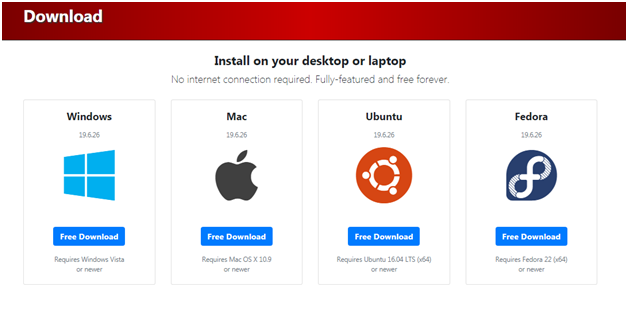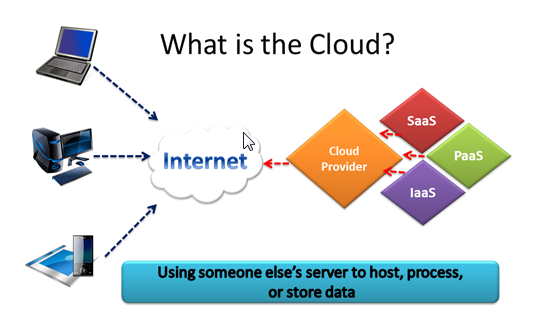
There are a lot of accounting and inventory software options
on the market today. Fortunately, almost any option you choose is going to
offer significant advantages compared to relying on spreadsheets.
But, if your software doesn’t suit the needs of your business, it can lead to
headaches and frustration. Worst case, you’ll be forced to switch solutions or
regress to spreadsheets.
So how do you know which solution to choose?
One of the first questions you’ll be faced
with is whether to select a desktop or cloud-based software. Here are the pros
and cons of each option, and tips on how you can tell which is right for your
business.
Desktop Accounting Software
Desktop accounting software is installed
directly onto your own personal computer. This means both the accounting system
and all of your business’ accounting data resides within your desktop or
laptop.
Traditional accounting software solutions were
desktop-based. You downloaded an application to your computer, either for free
or a one-time fee, and then could use it as needed. While this is
cost-effective, it also means you take on the accountability for updating the
software as needed, as well as backing up your data.
With a desktop solution, if your computer crashes,
all of your financial data is lost, unless you purchase an external hard drive
or server and regularly backup your data. Plus, desktop solutions are not
designed to work on tablets or mobile devices.
The only way you can work on the go is if you
take your laptop with you. However, the fact that you can access your software
without an internet connection is a strong advantage if you’re often traveling
or working where there is poor or limited connectivity.
Here’s an overview of the advantages and
disadvantages of desktop accounting software:
Advantages
● Accessible without an internet
connection.
● Very secure, when you’re not connected
to the internet. If your computer is connected, hackers could still access your
software and info through your computer.
● The price is typically lower than
cloud accounting software.
● Desktop solutions may run faster,
depending on the speed of your internet connection.
Disadvantages
● Only one person can be in the
software at one time.
● You need to access it on the
computer it’s installed on –- cannot switch back and forth between different
laptops or desktops.
● Cannot be used on a tablet or
mobile phone.
● Needs to be installed and updated
manually.
● Needs to be manually backed up to
a secondary location. Otherwise, if your computer crashes, you could lose
everything.

Cloud Accounting Software
Cloud accounting software is stored “in the cloud.” In other words, both the system
and your data is stored on the internet. Therefore, it can be accessed from any
location or device that has an internet connection and security access.
Historically, cloud software was viewed as
less secure since everything is through the internet. However, security and
encryption methods continue to advance, making your data safer than ever.
In fact, many cloud-based accounting solutions
use bank-level encryption software. In other words, your data is just as safe
in your software as it is in your bank account. It’s likely even safer than
data being stored in a desktop computer. Unless that computer never connects to
the internet.
One of the most attractive features of cloud
software is the ability for multiple users to access and work in it at once.
Not only can you seamlessly switch between your desktop, laptop, and mobile
phone, but you can also have one or more of your employees working in the
software at the same time.
Do you contract an outside accountant to do your end of year statements and taxes? If so, you can easily grant them access as well. You can also get a big assist from a network of tax experts online with TurboTax Live right from your home in Washington DC, New York City, Dallas, or anywhere else in the United States.
Here’s an overview of the advantages and
disadvantages of cloud accounting software:
Advantages
●
Multiple users can work in the
software at the same time.
●
No installation required.
● Updates and backups are automatic
–- no need for manual updates or secondary servers, hard drives, etc.
● Typically cloud software has more
security features, such as multiple layers of encryption.
● Can access your data from multiple
devices, and switch back and forth between devices.
Disadvantages
● You need an internet connection to
access your software.
● The cost is typically higher. Most
cloud solutions have a monthly fee that must be paid indefinitely. If you stop
paying, you may lose access to your account and data.
● If you have a slow internet
connection, cloud solutions can seem slow.

The Right Choice For Your Business
If your company is new, your budget is tight,
you only have one person who will be using the software on one computer, and
you have the means to securely back your data up in a secondary location, then
a desktop solution is likely your best option.
However, for most companies, cloud accounting
software is the better business choice. It supports multi-user access, enables
you to access it from anywhere, automatically takes care of upgrades and
backups, and is typically more secure. The bottom line is cloud software is
designed to be more flexible and is better able to grow with your business.
If possible try and find a software solution that offers both desktop and cloud-based accounting solutions such as Manager. That way, you can easily switch between the two. Which means you can start with the desktop version and seamlessly upgrade later once your business is ready. Or you can try out the cloud solution with the confidence of knowing you can downgrade to the free desktop version later without losing any of your precious data.
If you have any other tips for business owners trying to decide between Desktop or Cloud based accounting software – let them know in the comments.
If possible try and find a software solution that offers both desktop and cloud-based accounting solutions such as Manager. That way, you can easily switch between the two. Which means you can start with the desktop version and seamlessly upgrade later once your business is ready. Or you can try out the cloud solution with the confidence of knowing you can downgrade to the free desktop version later without losing any of your precious data.
If you have any other tips for business owners trying to decide between Desktop or Cloud based accounting software – let them know in the comments.












0 Comments